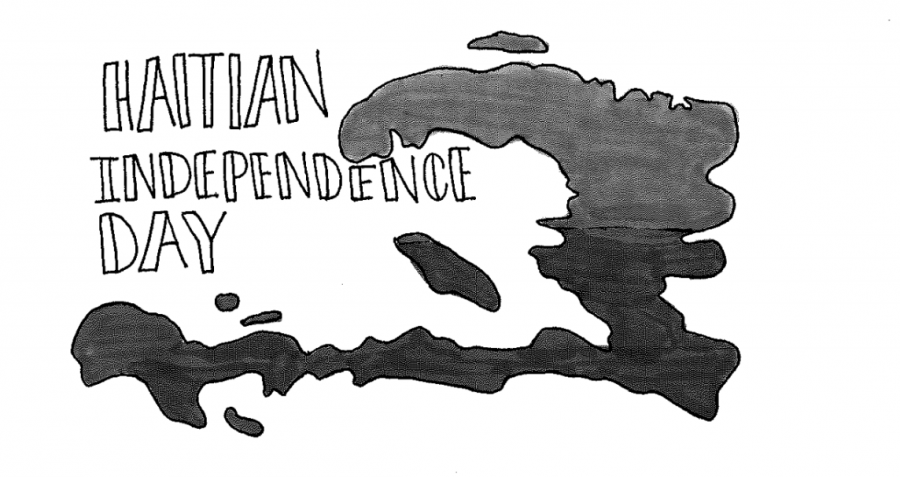Haitian Independence Day
Celebrating a Pivotal Moment in Haitian History
January 1st, 2020 was the 216th anniversary of the Haitian Revolution.
February 7, 2020
216 years ago on January 1st, 1804, at the port of city Gonaives, Haiti, Jean-Jacques Dessalines proclaimed the Declaration of Independence, marking an end to thirteen year-long Haitian Revolution fought with the French.
Led by the powerful former slave Jean-Jacques Dessalines, the Haitian revolution was the most successful anti-slave, anti-colonial and self-liberating movement in modern history. From 1650 to 1697, what is now Haiti was called Hispaniola and was a territory of Spain. In 1697, France invaded the island and took a third of it to create Haiti. By 1695, the French had expanded their area of control to include the entire island, making Haiti the size it is today. For over 100 years, Haitians were controlled by the French. Haiti became France’s wealthiest colony, producing vast amounts of sugar cane and coffee through dependence on brutal slave labor. Unable to take the mistreatment any longer, Jean-Jacques Dessalines and other Haitians decided it was time to revolt. They put their heads together and planned a meeting for an initial attack against the French. The war ended and Haiti declared independence when French Soldiers began to flee and after the violence claimed over 200,000 Haitian lives.
“That [was] the day my country was freed from slavery,” explained Deborah Midy ’20.
The Haitian community celebrates this momentous part of their history by drinking a squash soup called “Soup Joumou,” a soup that the slaves were forbidden to drink before independence. Drinking this soup was seen as an act of rebellion against the “masters,” and drinking it allows Haitians to remember the fighting spirit of the revolution. It’s also a time for families to gather and have a good time. “We get to eat great food and get to spend time with families,” said Frantsise Memeus ’22. “We often make a variety of soup,” said Rose Francois, Senior Director of Enroot, a program that supports immigrant children in high school and the first two years of college. Independent decades before any other black country, Haiti is seen as having played a major role in anti-colonial and anti-slavery revolutions around the world. In the words of Yassica Maignan ’22, “We really influence[d] and inspir[ed] other countries and nations to do the same. They looked up to us.” Haitians remember and honor their ancestors by celebrating and living the rebellion legacy that they created. As Schamaeaja Charles ’21 said, “This day is very empowering and shows how we will not let anyone control us.”
This piece also appears in our January 2020 print edition.











